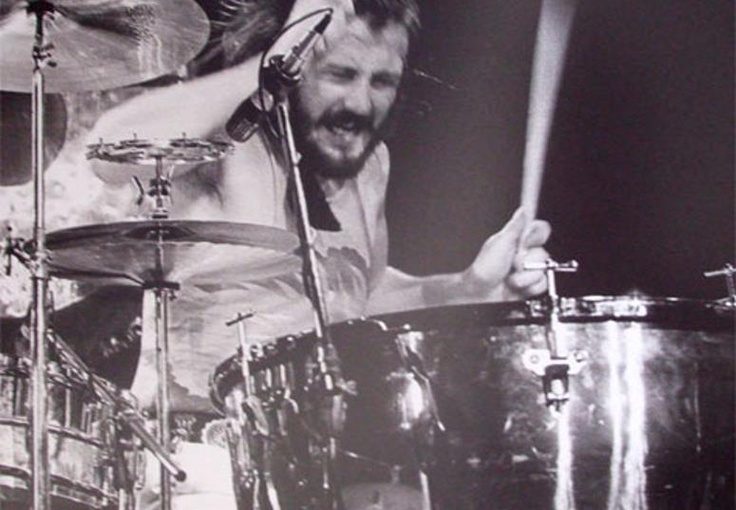He was the power behind the band that changed rock n roll. His contributions are worshiped daily in the drumming community. John Bonham, not only one of the greatest drummers of all time, but one of the best musicians ever, was found dead in a bedroom at Jimmy Page’s Windsor mansion on Sept 25, 1980.His style is forever. His power legendary. And his passion untouchable.
Of course, it wasn’t just his power that made him who he is. It was his impeccable drumming instinct. He played hard when he needed to. He played sensitive and soft if the moment called for it. And sometimes, he didn’t play at all, knowing that a song would be more effective without a bashing trap set, or even soft jazz brushes. And that’s the mark of a great musician. Having the instincts to play technically fast at times, but also recognizing when that’s not appropriate. His solo’s however, were a little long for my taste. But he did create the idea of the extended drum solo in rock which I love. In fact, Bonham really was the first drummer to not just be a beat and time keeper in rock music. He refused to simply sit in back and keep a 4/4 time like say, Charlie Watts or Ringo Starr. Not to take anything away from those players. They were simply doing what was in fashion at the time. Bonham, along with the rest of his band mates, shattered that norm.
From the steady build of ‘Stairway to Heaven’ to the steady, heavy beat of ‘The Wanton Song’. From the delicate touch of ‘No Quarter’ to the rock funkometer destroying ‘Trampled Under Foot’. The reggae shuffle of ‘D’yer Mak’er’. The syncopated introduction of ‘The Rover’. The endurance of ‘Moby Dick’. And finally, the fills at the end of a live performance of ‘Kashmir’. For the twelve years that he played on a record deal level, it didn’t get much better.
In the early fall of 1980, Led Zepplin were gearing up for a gigantic U.S. tour. They were rehearsing at Jimmy Pages home incessantly. Led Zepplin of course were masters of mixing partying and work. Until one fateful day, Sept 25th, when John Paul Jones and and the sound engineer Benji LeFevre found drummer John Bonham dead in his sleeping quarters; leaving behind a son and wife. Jones broke the news to Page and Plant. In the previous 36 hours of rehearsing the drummer had an estimated 40 to 50 shots of vodka with minimal water and food. The band members all struggled with addiction issues at one point or another. But I don’t think anyone was aware of the level of alcoholism that John Bonham was facing. I like to think that if a band member really knew, or a manager or something, that Bonham might still be here today. Of course as we know, the band decided that they couldn’t move on without him and disbanded immediately. Knowing it could never be same without him. Proof being the horrible Live Aid set five years later. Which by the way was not Phil Collins’ fault.
To say that Bonham is influential is like saying that airplanes fly. It’s just so obvious and direct. How many players has he influenced over the years? I certainly can’t name them all. I mean, that would be literally impossible because he influenced almost every drummer alive. And most of them don’t have record contracts. He really changed shit. He changed how drums are played. He changed the role a drummer plays in a band. He changed how people thought of drummers! Everyone in the community has been touched by his contribution and his legacy. That’s John Bonham, a true legend in every sense of the word.
The power in the introduction here will get ya!
Then gear shift into reggae shuffle. Technically it’s rock but there’s a major reggae influence going on.
Great instincts, touch and feel. Light it up!
The fills on this version of ‘Kashmir’ leave me speechless.

